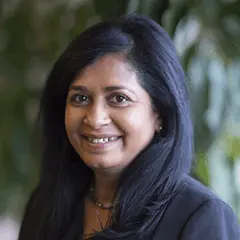 | 1 LU / HSW |
 | 1 LU / HSW |
“We don’t stop playing because we grow old; we grow old because we stop playing” ~ George Bernard Shaw
Play is critically important for young children’s cognitive and emotional development. When children play, they are building new connections in the brain that will help them succeed in school, in relationships, and in life.
For adolescents and adults play is an antidote to stress and a foundation for wellness. When we have playful experiences, we are improving our brains and our lives. Our urge to play is as fundamental to our evolutionary needs as eating sleeping and socializing.
This session will attempt to demonstrate how play can supercharge learning and help us all connect to each other and the world around us.
Imagine a place where human big and small can bring crazy joy energy and warmth as a power of true connections and purpose. Come play with us!!
Learning Objectives:

Nandita is a Market Sector Leader at Wightman & Associates, focusing on educational planning, design, and project management of K-12 educational facilities. She is a thought leader in the field of K-12 facility planning and a certified educational planner with A4LE, where she is a past Chapter President. Nandita is also involved with the AIA Committee on Architecture for Education. Her work is supported by her teaching background.

Robin is leader of the national PreK thru Higher Education practice at Legat Architects. She connects personally to each project ensuring the design of every learning environment supports diversity and engages students in a culture of inquisitiveness. Robin's 35 years of experience includes designing and planning award winning educational centers from early learning, elementary, middle, high school including specialty learning environments. Her current research is on How Buildings Teach Kindness.
This track addresses the Response to real-world events and experiences that impact our daily life and our ability to function normally and be productive. The response to these occurrences is reflected in the learning environments we create and leads to the question – how can schools respond to real-world crises in a way that supports the well-being of occupants and our students' learning journey? How do we respond with approaches and strategies that may be used to balance the inability and lack of needed financial resources to address deficiencies within our learning environments’ infrastructure? Topics expand on the Art approach to the theme, but also include Science in the form of findings and outcomes through case studies and examples of successful responses to real-world conditions and events such as the COVID-19 pandemic, climate change, declining student enrollment, economics, equity, and other topics.
Primary Core Competency
Design of Educational Facilities: Acts as a resource to the design team in providing ongoing guidance and support to ensure that the emerging and ultimate design aligns with the established community vision, education goals, future programming, written design standards, best/next practices and education policy.